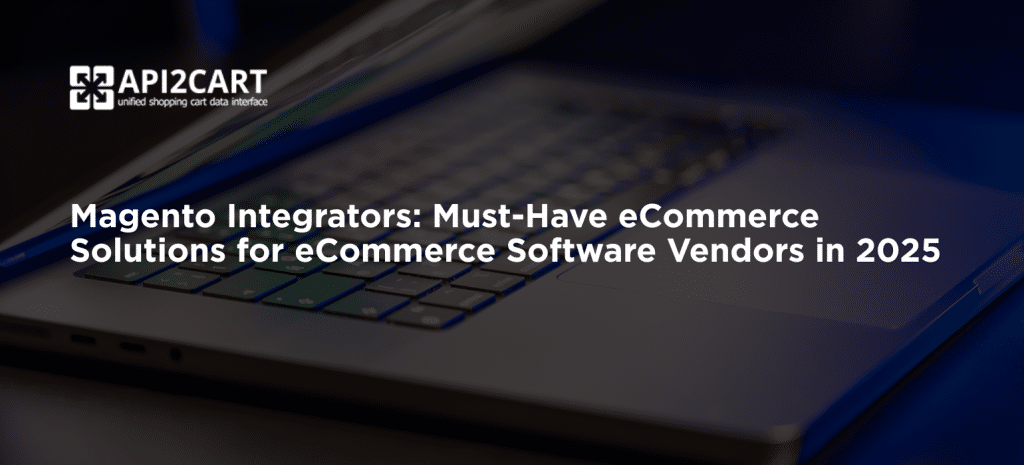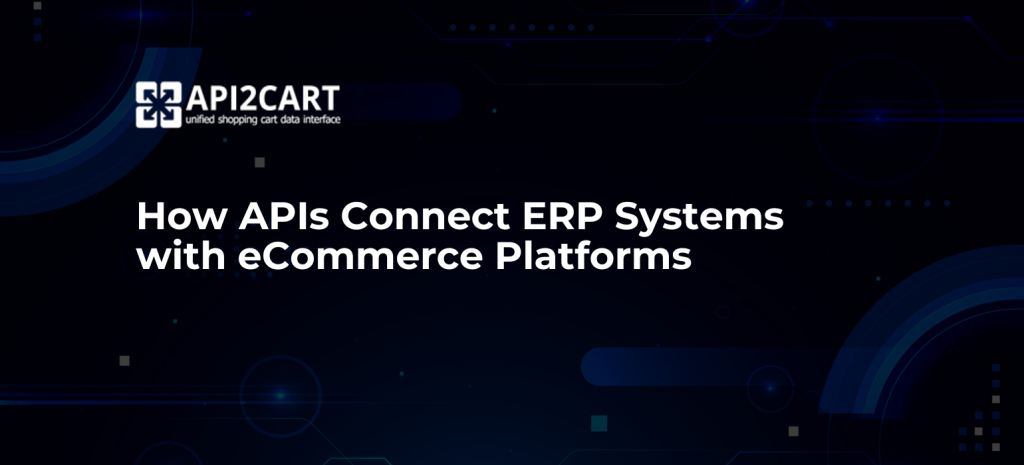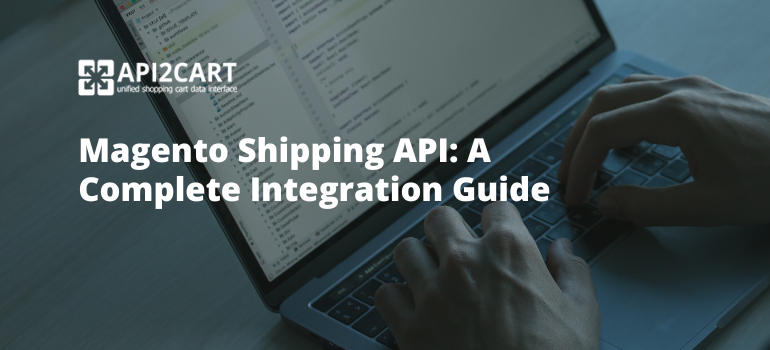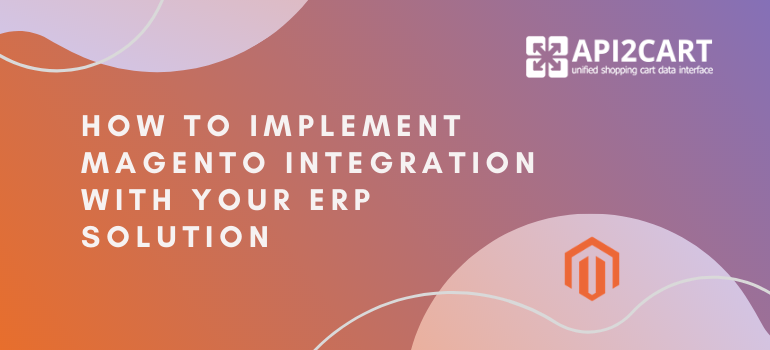
eCommerce is one of today's primary and most efficient ways to buy things. From the perspective of sellers, ordering and buying online may seem simple and straightforward. As a merchant, things are a little more complex than that, so many of them want to have some kind of ERP system to help them operate their business.
ERP software usually includes development, product planning, manufacturing, marketing, sales, user interface, and application. It is a true virtual office assistant packed into a single bundle.
You as the ERP solution provider must consider the option of integrating your ERP system with some kind of eCommerce platform because there is a lot of benefits for you and for your clients with that kind of integration. Merchants will be able to reduce order, inventory, products, and customer and shipping data manually and boost productivity.
In this article, we will show you why it is important for you as an ERP provider to integrate your system with the Magento eCommerce platform, one of the widely used shopping platform by many store owners.
Why Magento Integration is a Must-Have for Your ERP System?
As you may know, Magento is an eCommerce platform that essentially gives merchants, a variety of flexible options for setting up their custom shopping cart system. Magento gives shop owners a lot of control, particularly regarding functionality, content, and the general outlook of their store. Merchants can add a variety of themes and plug-ins to make the shoppers experience on their store page the best it can be. Magento offers all the tools needed to develop and operate a business, so it's no surprise that a lot of retailers use it. There are currently over 250 000 online commerce merchants worldwide that use either version 1 or version 2 of the Magento platform for their store.
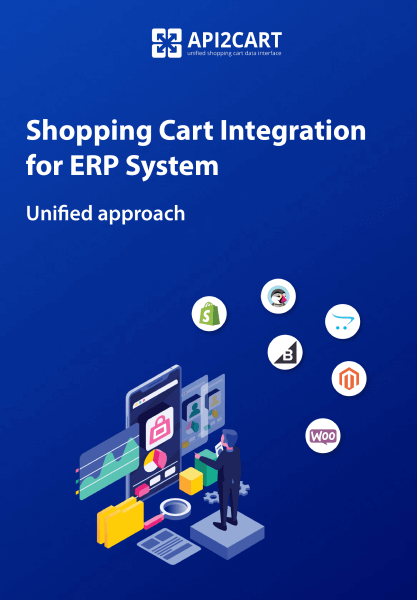
Shopping Platform Integration for ERP Systems
Explore how to develop the integration with multiple shopping solutions easily.
If you integrate your ERP solution with Magento eCommerce platforms you will drastically increase efficiency for shop owners using your ERP, meaning that their inventory, orders, customer data, and shipping details will all be synced between the main business process. While online stores may work without an aligned ERP system, repetitive tasks such as uploading product information or manually writing delivery addresses and tracking codes are susceptible to human errors.
Simply put, the experience of store owners who are using your ERP will be at stake if you don’t integrate. With your ERP integration with the Magento eCommerce platform, you're giving up to date sales information of online shops to store owners. Any sales made on their Magento website will appear instantly in ERP systems you supply to them. This means that the shop owners can plan the purchase effectively, which in turn will reduce their inventory costs. Web transactions will also update the item inventory of the ERP immediately, making it much easier for the shop owners to keep a record of their inventory. Besides, you will provide them the ability that inventory information will be posted directly from ERP to their eCommerce portal which eliminates the need to re-enter the data completely.
What is the Easiest Way to Developing Magento Integration with ERP System?
You also need to be aware that Magento integration with an ERP system is very challenging. It takes a lot of time and expertise to learn ERP systems when it comes to integration with an eCommerce platform. Here are the main reasons why this integration is so difficult:
- It is really difficult to find developers with specialized web programming skills and technical know-how
- While developing integration with the Magento platform, several technical problems can be encountered. These include issues related to sending information to Magento, inaccuracy of its API documentation, process trouble reindexing, etc.
- After implementation, each integration needs updates and maintenance, which would involve additional costs
- Development of integration is a time-consuming process
Besides, Magento's database model uses over 40 tables to store product and classification data, while the difficulty tends to increase during data extraction. That is mostly due to the Magento API's poor performance. For that reason, the best thing you can do is to choose already made and ready integration solution like API2Cart, because this API interface platform has already developed integration with over 40 shopping platforms, including Magento.
API2Cart is an integrated API that makes marketplace and shopping cart integration with your ERP much easier. It is a special online interface platform that offers a single API that can integrate with more than 40 shopping carts, including platforms such as Magento, Shopify, WooCommerce, BigCommerce, OpenCart, PrestaShop and many others.
The main advantage of this kind of integration for your ERP system is the fact that you will not need to develop separate integrations or take care to develop support for new shopping cart versions when they appear. This will save money, time, and developer resources for you. What is even better is that API2Cart has flexible pricing and allows you to test the service for 14-days absolutely for free. For more information feel free to contact us.
